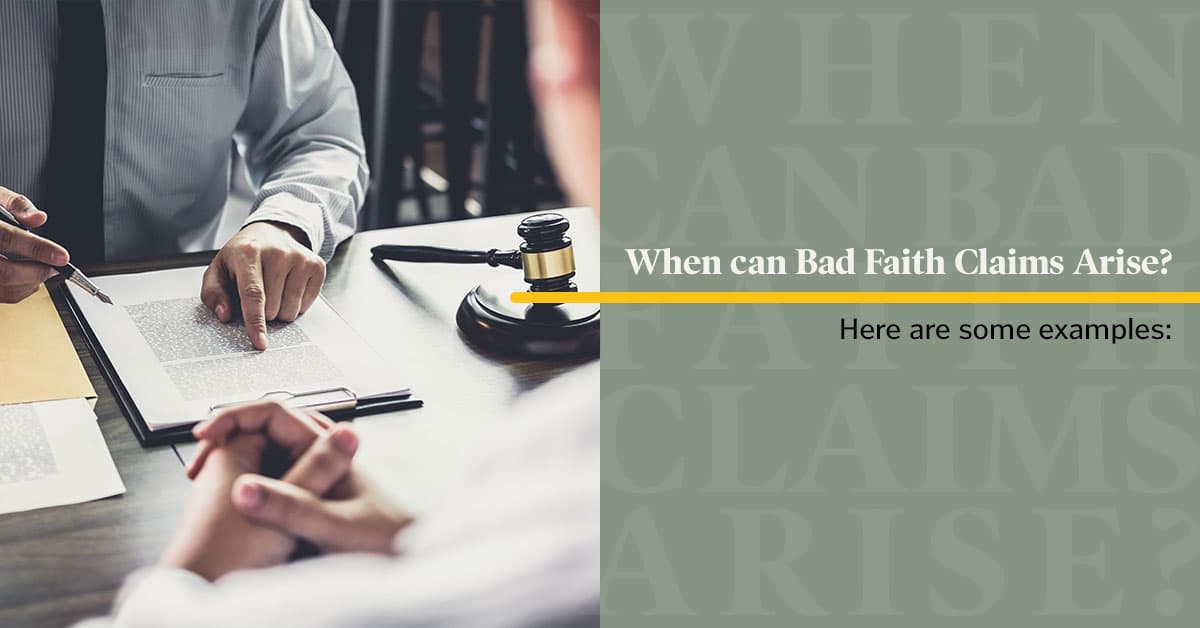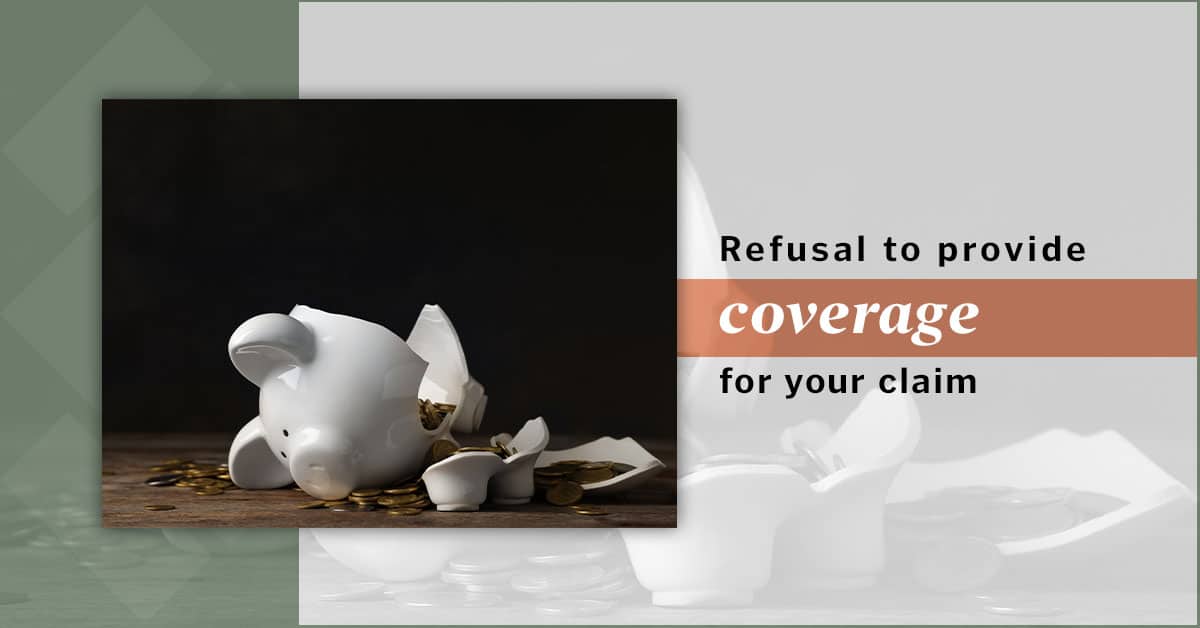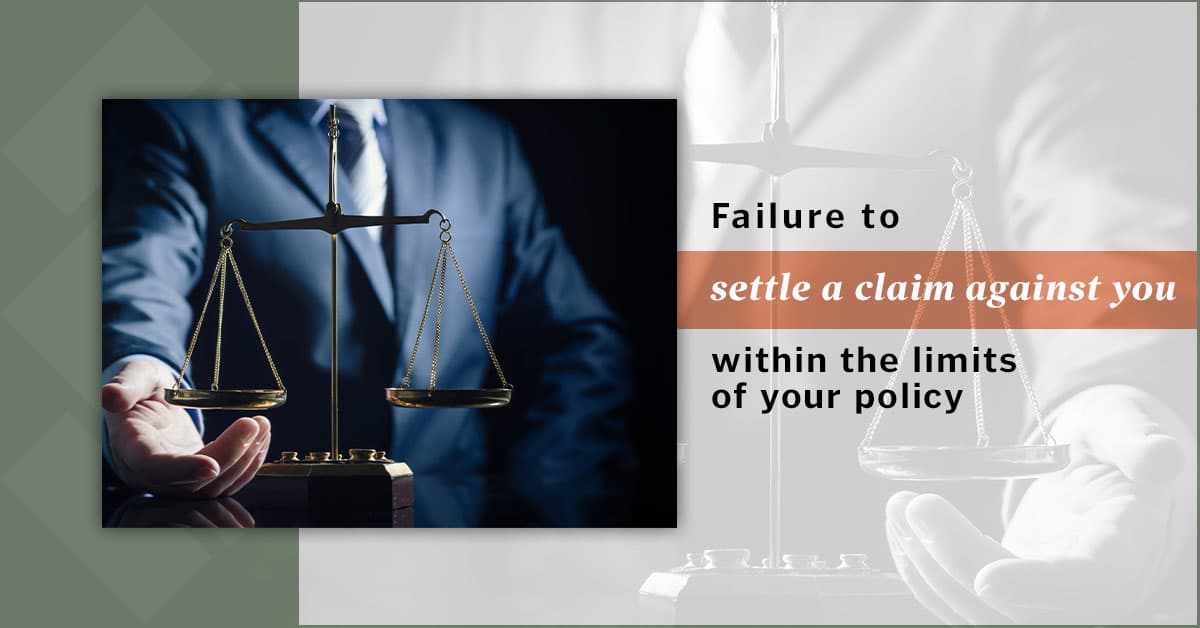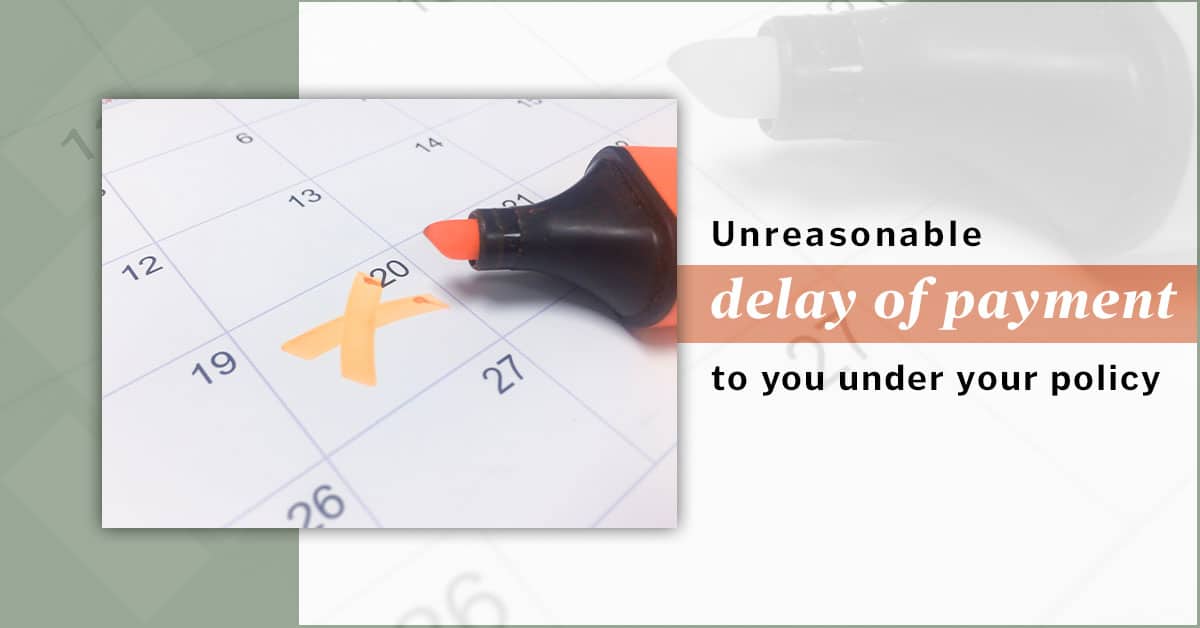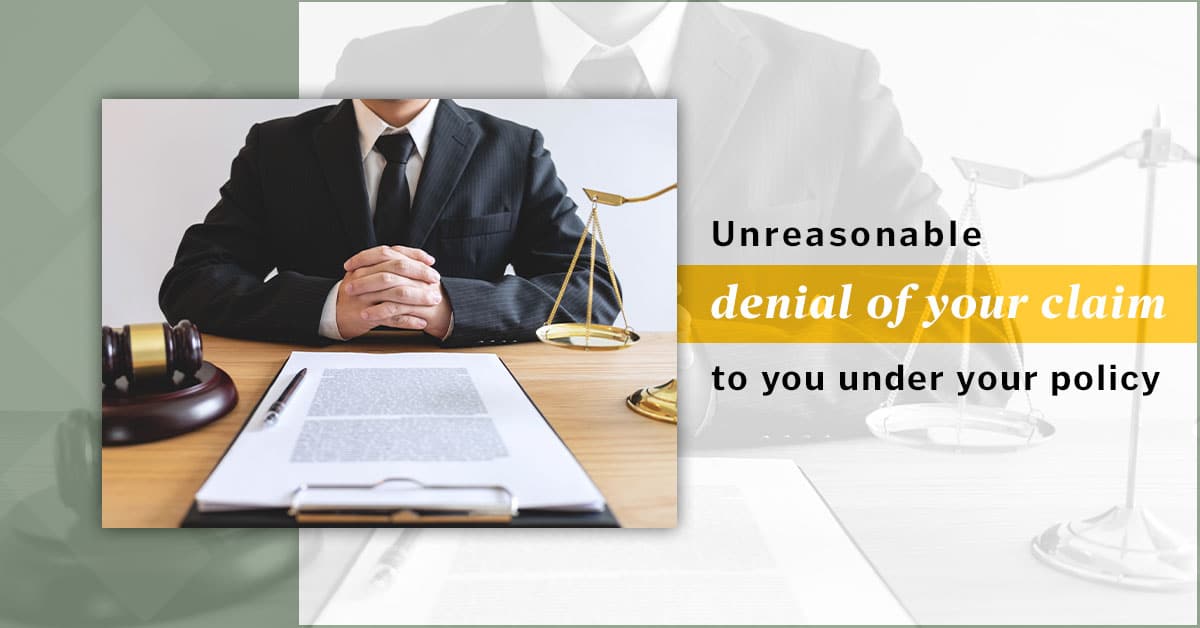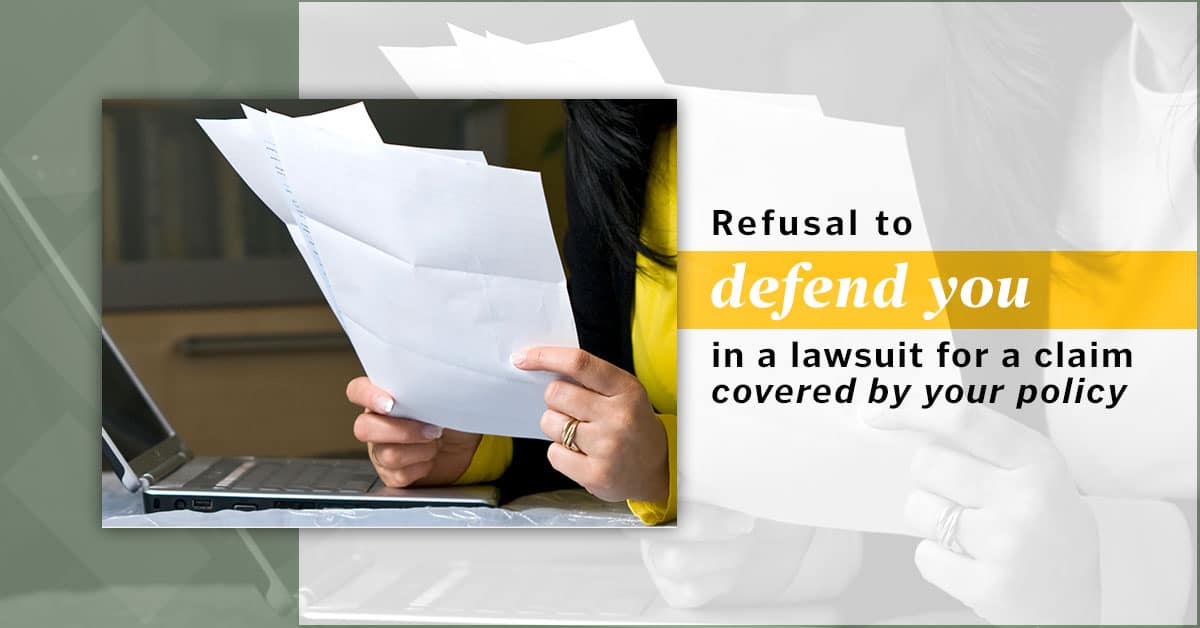We live in a world of insurance. Insurance companies are powerful entities in our society. Part of the reason they’ve become so powerful is because, when they’re functioning as they’re supposed to, they provide an important safety net in a world that is so often unpredictable and full of unexpected difficulties. But, what happens when insurance companies are one of the very things that are presenting difficulties in life? What happens when there’s an insurance dispute?
That’s exactly what we’ll be looking at in today’s blog. We’ll go over the essentials of what you need to know to navigate an insurance dispute, including what an insurance dispute is in the first place. We will also provide you with the steps you should take if you find yourself in a dispute over an insurance claim. If you are already in the process of an insurance dispute, be sure to reach out to our team of expert insurance claim attorneys. Hadfield Stieben & Doutt proudly serves the Fort Collins and Northern Colorado communities. Reach out to us today and we will fight on your behalf.
On that note, let’s look at what you need to know about insurance disputes.
What Is Insurance?
Let’s get the basics out of the way. Insurance is a service provided by companies to help protect people in various situations. This service is provided through a contractual agreement between the insurer and the insured, with contracts being represented through policies. An insurance typically involves a financial agreement, where the insured will pay the insurer an agreed-upon fee. In return for the fee, the insurer will protect the insured from financial injury. For example, life insurance policies entail the insured to pay a schedule fee throughout their lives. If the insured dies, then the insurance company will pay out a certain amount of money to help the family of the insured.
Of course, this is an extremely simplified example. There are a lot of things that go into determining the nature of insurance policies, and there are countless types of potential insurance policies and things that can be covered, from car insurance to flood insurance to insurance for a specific body part and everything in between. With this basic overview in hand, let’s turn to insurance disputes and how they arise.
What Are Insurance Disputes?
On the face of it, insurance seems like a win-win. These are mutually agreed-upon contracts where both parties confer benefits. What can go wrong? Well, insurance policies exist in the messy real world, meaning that there’s plenty of opportunity for things to go wrong. In its simplest form, an insurance dispute occurs whenever the insurance company fails to meet its obligations under the insurance policy. This can happen for a wide range of reasons. It can be a simple mistake on behalf of the insurance company, or it could be something bigger and more predatory. This is why insurance dispute claims are also sometimes known as “insurance bad faith claims.” Accordingly, it’s always best to work with trusted attorneys regarding your insurance claims. There are a lot of moving pieces, and the last thing you need is to be left in the lurch.
You might find yourself in a situation where an insurance company is failing to live up to criteria laid out in the insurance policy. This is unacceptable. Your insurance company owes you a duty of good faith in adjusting your claim, and it is our responsibility as your attorney to fight on your behalf. As we explored in our dedicated insurance dispute page, there are state-specific laws regarding what counts as an insurance dispute. In Colorado specifically, the law provides that your insurance company may have breached this duty if the following occurs:
- Misrepresenting pertinent facts to insurance policy provisions relating to coverage issues
- Failing to acknowledge and act reasonably promptly upon communications with respect to claims arising under insurance policies
- Failing to adopt and implement reasonable standards for the prompt investigation of claims arising under insurance policies
- Compelling insureds to institute litigation to recover amounts due under an insurance policy by offering substantially less than amounts ultimately recovered in actions brought by such insureds.
- Failing to properly settle claims where liability has become reasonably clear, under one portion of the policy, in order to influence settlements under other portions of the insurance policy
- Failing to promptly provide a reasonable explanation of the basis in the insurance policy in relation to the facts or applicable law for denial of a claim or for the offer and compromise settlement
What to Do Next?
If you’ve found that your insurance company has made a bad faith insurance claim, then what can you do next? HSD Law has some recommendations. Let’s look at them step by step.
1. Get a Consultation
First things first: speak with a trusted attorney so you can get a strong sense of the situation. As mentioned above, these are complex matters. It’s essential that you have a team of attorneys on your side. At HSD Law, you can schedule a free, no-obligation consultation to help you through this process.
During the free consultation, you will get the chance to tell your story and answer some questions that will help us understand how you and your family have been harmed by these bad faith insurance claims. We will then outline what you can expect from us, including a rough timeline for your case. HSD Law is flexible and we can consult over the phone, meet at your home, or meet at our Fort Collins location. We will work with you to figure out what’s best. As mentioned, this is a free, no-obligation consultation. After we’ve gone through all of this, you get to decide whether or not you want to hire us as your attorneys.
2. Work With Your Representation
Now that you have experienced representation, we can take over the messy steps moving forward. We will notify all insurance companies and lawyers (and any other appropriate parties) and ensure that they understand that communication will now be through us. You won’t have to field the pressure from them. You won’t have to deal with their phone calls, their emails, or their letters. In a situation where you must give a statement, we will be with you through the process and help you get a sense of what to expect.
During this process, your case is considered pending. You do not pay us while your case is pending. The reason for this is because we are paid based on the money that we are able to recover for you. In situations where no money is recovered, then we do not get paid. This demonstrates our level of investment in fighting for your rights.
3. Begin Investigating Your Case
Now that you won’t have to deal with the calls and emails from claims adjusters and insurance companies, our next step is to start building the strongest case possible. In order to do this, our personal injury attorneys will start to investigate and obtain as much evidence as possible to support your claim. We are meticulous and detail-oriented in order to ensure that you get what you deserve.
4. Seek Out Expert Involvement
Part of our ongoing research to gather evidence to support your claim comes through consultation with experts. This ensures that the information we have gathered is as concrete and detailed as possible.
5. Attempt Settlement
Statistically, the majority of cases will be settled without needing to involve the courts. This is typically a desirable outcome. Together, we will decide on a fair amount of monetary compensation to request from the insurance company.
Typically, this will result in the settlement of your case. At this point, your claim will be resolved and we will turn to reimbursement obligations. However, there are times when an out-of-court settlement cannot be reached. This can happen if the at-fault party refuses to pay you a fair amount.
6. Litigation
In situations where a settlement is not able to be reached, then you might need to file a lawsuit to get a fair recovery. Ultimately, this will be your decision to make. Of course, our team of expert insurance claim attorneys will use their extensive experience to advise you as to the fairness of any offers that are made. You make the final decision whether or not to pursue litigation or go to court.
7. Collecting Your Disbursement
This is the part where you collect the check. Our insurance claim attorneys have helped you get the compensation you are entitled to and all of the issues have been resolved. There are no more obligations. You can count your case as officially closed.
Contact HSD Law
We have looked at the essentials of insurance disputes. Of course, things are quite a bit more complicated than what can be captured in a single blog post. But, we’re here for you. Be sure to visit our FAQ page to find answers to more of your questions, or else reach out to us in Fort Collins to schedule your free consultation today. We look forward to working with you!

